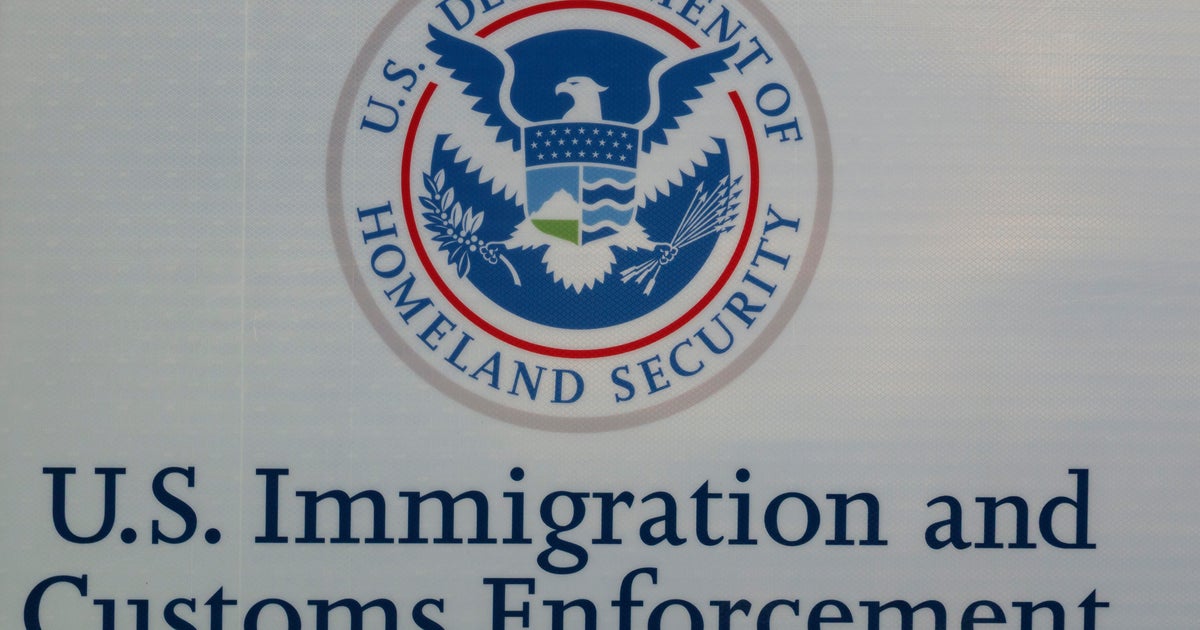Monkeypox in Europe: France and U.K. among nations recommending vaccine for close contacts amid outbreaks
London — The European Union's infectious disease agency has recommended that EU member states review the availability of smallpox vaccines in their countries for possible prophylactic use in the face of rising monkeypox cases. On Tuesday, the national health authorities in Denmark and France recommended that people who have been directly exposed to a confirmed monkeypox case be vaccinated, and the U.K. health authority has made a similar recommendation.
Monkeypox and smallpox are closely related, and the U.S. Centers for Disease Control and Prevention says an existing smallpox vaccine is "at least 85% effective in preventing monkeypox."
Smallpox was eradicated in 1980, but stockpiles of vaccines have been maintained around the world to protect against a possible resurgence. There is also a newer vaccine against both smallpox and monkeypox, which was approved by the FDA in 2019.
In a report published Monday, the European Center for Disease Prevention and Control (ECDC) said the smallpox vaccine could be considered as a prophylaxis, or preventative measure, for those who have been exposed to monkeypox, but that individual risks and benefits should be assessed and "important information on the use of currently available smallpox vaccines is missing for groups at increased risk for severe disease."
The ECDC said antivirals could be another potential treatment option for severe cases. It did not recommend mass vaccination of entire populations to prevent the spread of monkeypox, which requires much closer contact for transmission than COVID-19, for example.
"The way smallpox was eradicated was not through mass vaccination of everybody, but what we call ring vaccination, where you identify who has monkeypox, or in the old days smallpox, who has been in contact with them, and you vaccinate all those people who have been in contact - not the general public," infectious disease specialist Dr. Celine Gounder told CBS News on Tuesday.
"Countries should update their contact tracing mechanisms, their diagnostic capacity for orthopoxviruses and review the availability of smallpox vaccines, antivirals and personal protective equipment (PPE) for health professionals," the ECDC said it its report.
Germany has ordered 40,000 doses of the newer smallpox and monkeypox vaccine, according to reports. The country's government health agency, the Robert Koch Institute, has recommended that people who contract monkeypox and their close contacts self-isolate for at least three weeks.
Health Minister Karl Lauterbach said at a Wednesday news conference that while "it is important to take tough and pre-emptive action" early against the spreading contagion, German officials didn't expect the handful of cases confirmed in the country to grow into an epidemic.
This is a "known virus and we know how to combat it," Lauterbach said.
There have been reported cases of monkeypox, which is endemic in parts of central and west Africa but rare in other parts of the world, in the U.S., U.K., Slovenia, the Czech Republic, and nine European Union member states, including Belgium, Spain, France, Austria, Germany, Italy, Portugal, Sweden, and the Netherlands.
The ECDC says "monkeypox does not spread easily between people" and that most cases in the current outbreak have had mild disease symptoms, though there is thought to be a risk of more severe disease in some vulnerable groups, including pregnant and immunosuppressed people and young children.
The European health agency said the overall risk to the broader population remained "low," while people with multiple sexual partners were at "moderate" risk.
So far, the World Health Organization has registered more than 250 suspected and confirmed infections. The majority of the cases have been reported in men who have sex with men, and the WHO has highlighted the risk of sexual transmission of monkeypox in particular.
"I think it's bad luck, frankly, that we're seeing this spread in men who have sex with men," Gounder told CBS News. "You have to think about these as large social networks... Sexual activity is a form of close contact. It's not that this is a virus that's specifically spread through sexual contact, but you're going to have close contact if you're having sexual activity or dancing at a rave in very close contact together."





